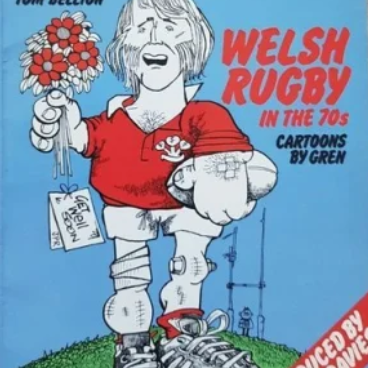History was made in 1983 as Wales B embarked on a summer tour to Spain.
A ‘Welsh’ record was broken. Wales scored 83 points against a Castillian XV. This was a Welsh record for a Welsh representative side beating the 82-6 victory against Japan in 1975.
An unique fixture was played. Wales played a Basque XV. This was the Basques first ever ‘National’ match playing against a touring side.
Spain liked their Rugby. They were one of the first European countries to screen Wales home matches and the Spanish couldn’t believe Wales were touring their country!
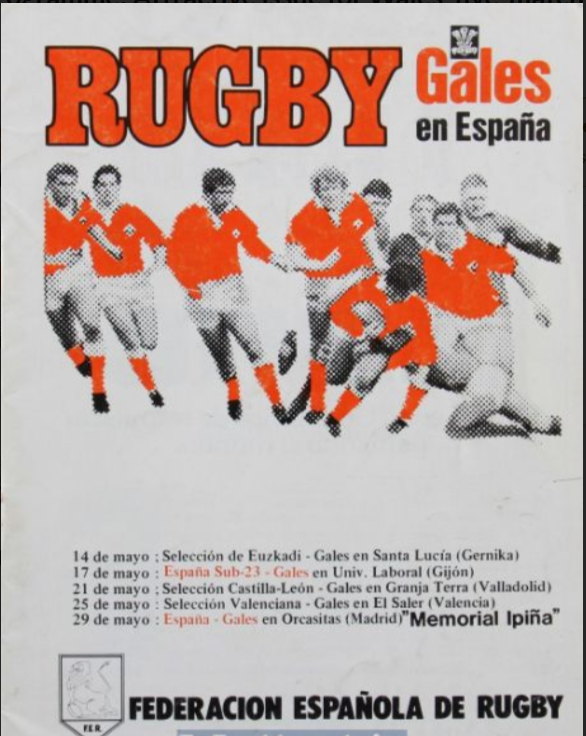
The Wales B team played Basque XV, Spain Under 23, Castilian XV, Valencia XV and finally Spain in Madrid.
The Welsh Coach was John Bevan, a former Aberavon player and Welsh international. Bevan coached the Wales national side from 1982 to 1985 but was forced to retire on the grounds of ill health and sadly died of cancer aged 38 in 1986. The Captain was the late Eddie Butler who passed in 2022.
The 29 man strong Wales B touring party was managed by Rhys Williams (1930-1993). , a former Welsh captain, capped 23 times by Wales from 1954 to 1960 and ten times for the British Lions.
Wales Squad
The original squad selected was as follows:
Backs: Hywel Davies (Bridgend). Wings: Adrian Hadley (Cardiff), Elgan Rees (Neath), Clive Rees (London Welsh). Centre: Richie Donovan (South Wales Police), Dai Richards (Swansea), Mark Ring (Cardiff), Bleddyn Bowen (South Wales Police), Malcolm Dacey (Swansea), Mark Douglas (Llanelli), Ray Giles (Aberavon).
Forwards: Ian Eidman (Cardiff), Rhys Morgan (Newport), Jeff Whitefoot (Cardiff), Clive Williams (Swansea), Kevin Townley (Llanelli), Billy James (Aberavon), Richard Moriarty (Swansea), John Perkins (Pontypool), Terry Shaw (Newbridge), Mike Davies (Swansea), Carl Dennehy (Ebbw Vale), Gareth Roberts (Swansea), Eddie Butler (Pontypool, Capt), J.Thomas (Maesteg).
The Wales tour to Spain was a journey into the unknown for the Welsh team. The Maoris, who had recently toured Wales in 1982, had crushed the Spanish 66-3 on their return from Wales. For this match, the Spanish team were under prepared and in some disarray at the time. Many regarded Spanish rugby as well organised and full of heart and Spain had recently been close to beating a full strength Argentinian National side and their U19 and U23 had fared well in their recent tours of the UK.
Rhys Williams, the tour manager, said:
I am not complacent about the tour. There is a feeling at home that it is a question of will we beat Spain and by how much. They have had some good results and were only beaten by three points by Argentina. We all know how close both Argentina and Romania have come to beating Wales at home, so it won’t be easy for us.
Williams was also one of the few Welsh internationals who had played against Spain. In 1952, he featured in one of the first sides to visit Spain as a member of a touring RAF team who met a Spanish XV in Madrid. Of the 1952 tour, Williams said:
We were probably the first touring side to play in Madrid, and we found it hard going. The Spaniards were very hard and determined. They scrummaged and jumped well, and quite a number of the players were from the Basque region.
Many of Welsh players were touring with the British Lions in New Zealand. As a result, 8 players were unavailable – Robert Ackerman, Gwyn Evans, Terry Holmes, Ian Stephens, Graham Price, Jeff Squire, Staff Jones and Bob Norster. Despite these absentees, Wales took a very strong squad to Spain. According to Williams:
We have a good cross section of experienced internationals and promising youngsters in the party and the whole idea is to develop players for the future.
There were withdrawals from the original squad selected. Dai Richards did not recover from a broken collar bone and was replaced by Llanelli’s Peter Hopkins. Backs on stand by included Swansea’s Mark Titley and Wayne Bow of Ebbw Vale who had replaced Paul Rees who was released to tour South Africa.
Newport prop, Rhys Morgan, pulled out with a badly swollen foot and was replaced by 23- year-old Gareth John of Swansea. Capped by Wales at youth level John joined Swansea from Waunarlwydd and in 1983 was a regular at the All Whites following his graduation from South Glamorgan Institute of Higher Education. He was also a former British Colleges player. Sadly, it was not the greatest of tours for John as a gashed knee going septic limited his appearances on tour.
There was also bad luck for Richie Donovan whose solitary cap came as a replacement against France a few weeks before. The South Wales Police centre was sent home due to injury and did not play a match. A cruel blow as he won a cap as a replacement in his first season out of youth rugby and was never capped again.
There was an exciting blend of youth and experience within the backs. Mark Ring was already capped, his first coming against England, during that seasons 5 Nations. Much was expected of Adrian Hadley who was seen as long term replacement for Clive Rees now 31 and also touring.

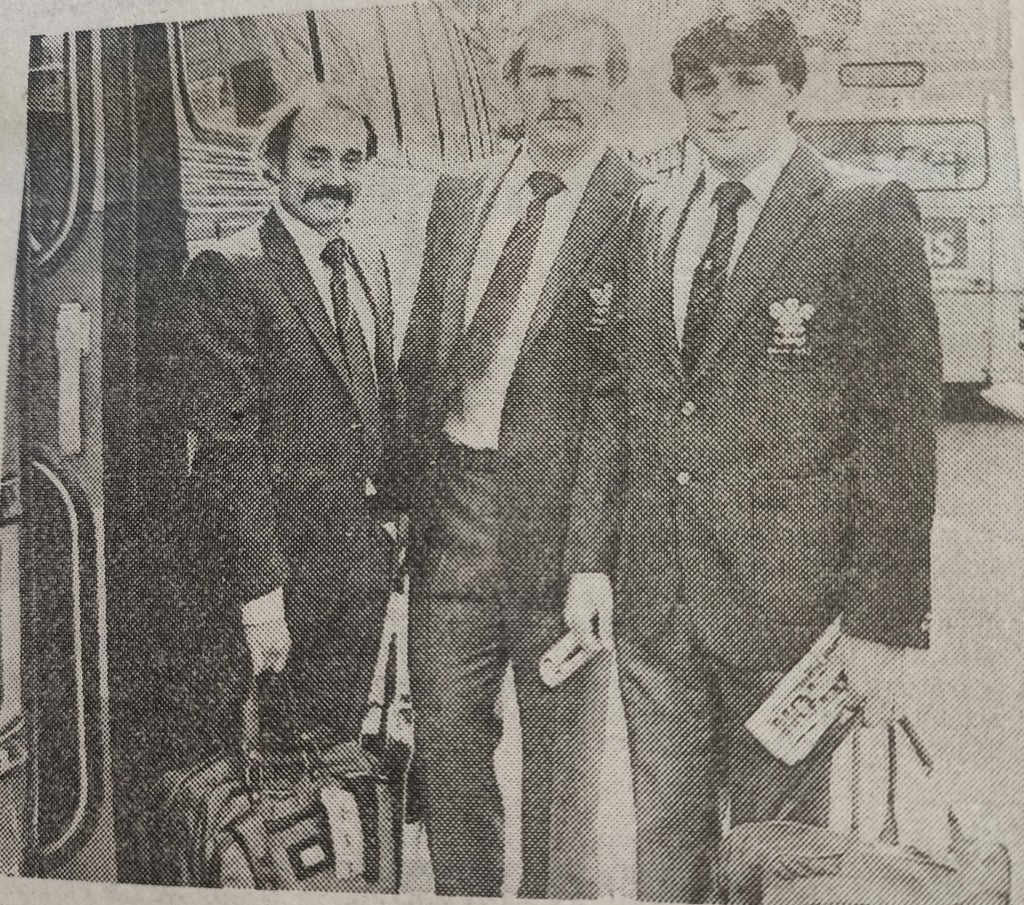
Clive Rees, Gareth Roberts and Mark Ring departing from Cardiff
Picture from the Western Mail
Wales XV 24 v Basque County 3, Guernica
The first match was against the Basques at Guernica. The town with a sad history as it was bombed by the Germany’s Luftwaffe in 1937, an attack full of controversy as it involved the bombing of civilians by a military air force and considered to be one of the first aerial bombings of its kind.
Guernica is a Basque rugby town, the club later competed in the European Challenge Cup in 2012 and played against Perpignan and Worcester!
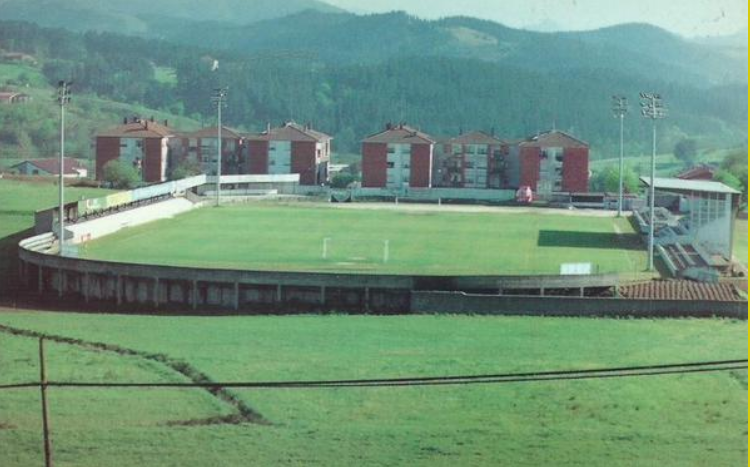
The game was played at Campo de Santa Lucia. The ground no longer exists as site has been redeveloped for housing in 2010.
It was an unusual build-up before the match as the Wales team travelled to Vitoria to meet the Basque President, Carlos Garaikoetxea. The party became increasingly aware of the nationalistic fervor and the local newspaper even referred to the team as being ‘representatives of Plaid Cymru’. There was also a first, as this would be the first ever ‘National’ match playing against a touring side for the Basques.
The match was refereed by Georges Domercq who had refereed 30 international matches, and was famous as being the first Frenchman to referee a test match. This was a relief as previous tourists to the Basque county, North Midlands County, had encountered problems with home referees!
For the Basques, this was nothing short of an international. Although rugby had been played in northern Spain for 30 years it was only in the last 12 years that the Basques had their own Federation and organisation. They had 22 senior clubs and 1,700 registered players. San Sebastien had a strong team and the Basque pack had 5 Spanish internationals. In all, there were 10 Spanish internationals and French winger Laurent Pardo was playing at Outside half.
Rhys Williams, Wales team manager, said:
From what I have heard, the present Basque side is rather large. Forwards are said to scrummage well and should give us a good test.
Wales chose their strongest side in a bid to ensure a winning start to the tour. Only two full internationals were missing from the game, Billy James of Aberavon who was on the bench while centre Richard Donovan of South Wales Police was missing due to a stomach upset, a none too friendly Spanish omelette!
The match was an opportunity for Aberavon’s Ray Giles to become heir apparent to Terry Holmes. There was a battle for the replacement scrum half spot between Ray Giles, Gerald Williams of Bridgend and Mark Douglas of Llanelli in 1983.
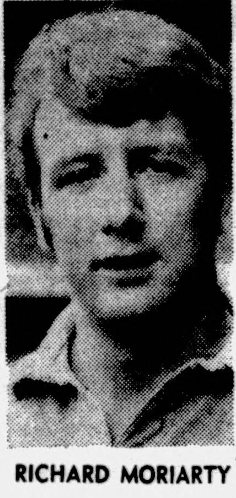
Richard Moriarty was selected. He was dropped following the 13-13 England draw therefore this was an opportunity for him to re-establish himself in the team. The Wales physiotherapist used ultra sound techniques and massage to make him fit for the game. He would later captain Wales and earn 23 caps.
The Wales XV was as follows. Howell Davies (Bridgend), Elgan Rees (Neath), Peter Hopkins (Llanelli), Mark Ring (Cardiff), Clive Rees (London Welsh), Ray Giles (Aberavon), Clive Willians (Swansea), Jeff Townley (Llanelli), Ian Eidman (Cardiff), Clive Perkins (Pontypool), Richard Moriarty (Swansea), Carl Dennehy (Ebbw Vale), Eddie Butler (Pontypool), Mark Davies (Swansea)
At centre, Peter Hopkins partnered Mark Ring. Clive Williams and Ian Eidman were at prop and John Perkins and Richard Moriarty at lock while the uncapped Karl Dennehy in the back row featuring Mark Davies and Welsh captain Eddie Butler. Howell Davies was playing his first game at any level in a Welsh shirt.
Wales played a stubborn and well prepared Basque XV. Although never really threatened, Wales were knocked out of their stride by a extremely vocal and partisan 5000 crowd.
The Basques had a chance to go ahead after only three minutes but French international outside half, Laurent Pardo, kicked his penalty wide. Pardo played for Aviron Bayonnais from 1978/79 and in 1983 was a San Sebastián player.
Clive Rees scored his first international try for 8 years against the Basques, the last being in Japan in 1975. Pardo missed one more penalty before the town of Guenrica went wild when Spanish international star, Javier Diaz Paternain, landed a 30 metre drop goal. Paternain went on to win 30 caps for Spain from 1983 to 1993.
John Bevan, the Welsh coach, said:
It was nice to get off to a winning start but the Basque team were better than we expected.
Eddie Butler, the Welsh captain, said:
We really didn’t know what to expect before we came and we were surprised with how well the Basques played. We didn’t really play well, but having said that we mustn’t take anything away from them.
May 17th, Wales XV 32 v Spain U23 6, Gijon
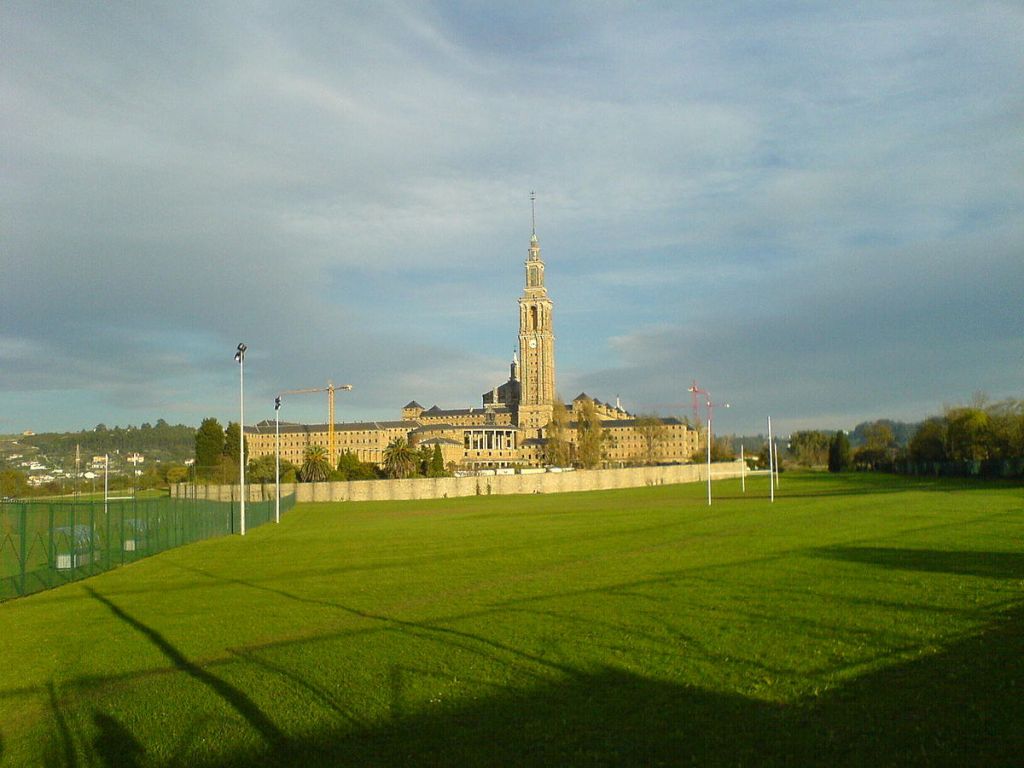
The match against Spain Under 23 was played at University Labotai, Gijon.
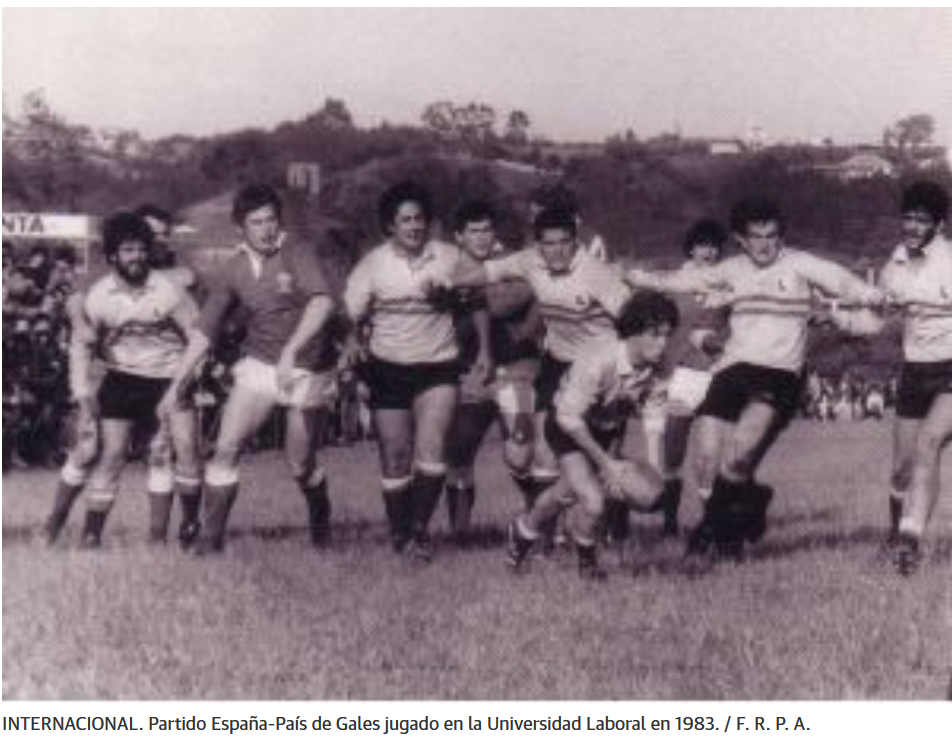
For the Under 23 match, there were 11 changes, two of them positional. Adrian Hadley came in at wing, Richard Donovan at centre, Bleddyn Bowen and Mark Douglas at half backs, Hopkins moved to the wing. Whitefoot partnered his Cardiff colleague Ian Eidman in the front row with Billy James coming in at hooker and captaining the side. Terry Shaw replaced John Perkins. Maesteg John Thomas was at No. 8 and Gareth Roberts at flanker.
Wales. Howell Davies (Bridgend), Adrian Hadley, M.Ring (both Cardiff), Richie Donovan (South Wales Police), Peter Hopkins (Llanelli), Bleddyn Bowen (South Wales Police), Mark Douglas (Llanelli), J. Whitefoot (Cardiff), B. James (Aberavon), I. Eidman (Cardiff), Terry Shaw (Newbridge), Richard Moriarty (Swansea), Eddie Butler (Pontypool, Capt), John Thomas (Maesteg), Gareth Roberts (Swansea)
There were late withdrawals as Eddie Butler and Elgan Rees pulled out the morning of the match.
The U23 were expected to be quicket than the Basques and their three quarters more skilful but their pack were light and small and were expected to struggle for possession. The Spanish coach had problems selecting the side as their season had finished a month ago. There were 6 internationals in the side captained by No.8 Jose Egido Sanchez, one of eight players featured brought up through the international ranks by Morgan Thomas of Barry. Four of the side were expected to face Wales in the international in Madrid.
Spain U23. G. Rivero Macia, F. Valasca Munoz, C.Otea Calatayud, J. Moreno De Alboran, R. Sainz de la Cuesta, L. Muez Doval, J. Tormo Lopez, F. Baiget Viale, D. Baez Sanz, J. Uria Hidalgo, A. Perez Ortega, B. Abascal, J. Candau, J. Gido Sancho, B.O
The Spanish Under 23 took the lead through a Lous Nunex penalty before Billy James powered himself over from a short penalty move. A second penalty by Nunez was cancelled out by a Gareth Roberts try before half time. Adrian Hadley scored in the corner as Wales looked so more confident in the second half. Centre Peter Hopkins extended the lead with two tries. The last two was scored by prop Jeff Whitefoot. There were six tries in an improved display. Spain gave a good account of themselves and kept Wales to a 2 point interval lead. Admittedly, they made use of the strong wind and their captain, Jose Eigdo, was a thorn in the Welsh side. Eigido won 18 caps for Spain from 1982 to 1990.
The Welsh forwards had improved but needed to play a tighter game. They were not helped by some rather indiffirent refereeing decisons by Portugal’s Louis Felt. Mark Douglas had a very good game altering his options intelligently providing a sound service to Bleddyn Bowen. The backs handled fairly well but too often players slowed possession by stepping inside. A swifter service to Adrian Hadley in particular would have proved more fruitful for Wales.
Rober Mahon, the Wales liaison officer, was rather worried that Wales would lose against Spain. He said:
The way we are playing at the moment I don’t think they will beat Spain in the international in Madrid if everything goes well with Spain. The Welsh team have obviously a lot of class and with 12 internationals in their party should be able to field a strong side against Spain. But there are enough holes in their form at the moment to give the Spaniards a good chance of winning
May 21st, Wales XV 83 v Castilian XV 3, Valladolid
There were seven changes for the match against a Castilian XV at Valladolid and Eddie Butler was back at captain. Mark Davies replaced Dennehy. Gareth John was to play his first game of tour as he replaced Eidman and Whitefoot was replaced by Clive Williams. Perkins was selected at second row and partnered Terry Shaw who had a very impressive debut against Spain U23. The line-outs were one area of the game Wales needed to brush up on. Bleddyn Bowen played at centre as Richie Donovan was injured and replaced Mark Ring. Bowen had a good game in his accustomed position at outside half but this time, International outside half Malcolm Dacey returned to the side.
Wales. Howell Davies (Bridgend), Adrian Hadley (Cardiff), Bleddyn Bowen (South Wales Police), Peter Hopkins (Llanelli), Clive Rees (London Welsh), Malcolm Dacey (Swansea), M. Douglas (Llanelli), Clive Williams (Swansea), Billy James (Aberavon), Gareth John (Swansea), John Perkins (Pontypool), Terry Shaw (Newbridge), Mark Davies (Swansea), Eddie Butler (Pontypool, Capt), Gareth Roberts (Swansea)
Wales went on a scoring spree which demonstrated what was good about Welsh rugby after two mediocre wins in front of 2000 crowd. The pitch and conditions made it perfect for the Welsh team to show off their skills.
Two records were broken. 83 points was a Welsh record for a Welsh representative side beating the 82-6 victory which included 14 tries against Japan in 1975. There was also the highest number of tries scored in a Welsh win – 15.
There were 5 first half tries and 10 second half tries. Gareth Roberts ran in three first half tries. Hadley and Davies also added to the scoreline with a try each in the first half. The pitch was perfect, one of the best the Welsh players had ever played providing a fantastic display of running rugby and forwards took complete control..After the interval Wales ran riot scoring a try every 4 minutes. There were a further 2 tries for Malcolm Dacey and Adrian Hadley and try each for Butler, Bowen, James, Mark Davies and Douglas.
Malcolm Dacey dictated the tempo of the game superbly. When it came to attack, Bleddyn Bowen, cut the Spaniards to shreds with his dummies and side steps and proved to be the perfect centre link to the wings. The experiment of playing the South Wales Police player at wing was a resounding success and he was likely play in the International at centre.
Up front, Wales rucked, mauled and scrummage expertetly. John Perkins at lock had a significant game and Swansea flanker a particularly productive match.
In the end Eddie Butler asked the referee to finish the game early. The Spanish had their moment of glory when full back Francisco Lebrato kicked a penalty but it was totally one-way traffic.
The manner of victory brought smiles to manager, Rhys Williams, and coach, John Bevan.
John Bevan said:
The forwards played very well and after controlling matters in the first 20 minutes we were able to run the ball as we wanted to. I am delighted by the performance.
May 25th, Wales XV 71 v Valencia 0, Valencia
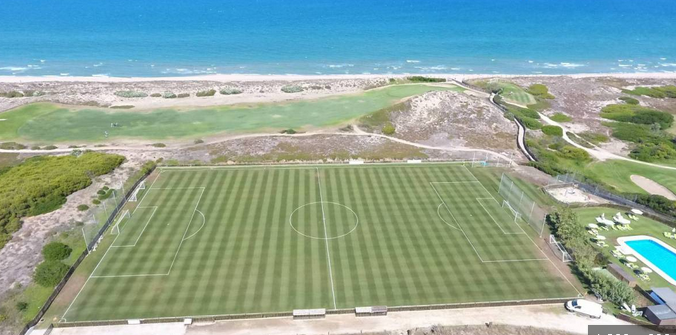
The Valencia match was played at El Saler, Valencia
This was expected to be the hardest match for Wales. CR Valencia had recently beaten Architecturae of Madrid who had overcome Llanelli earlier in the year.
For the match against Valencia, Swansea flanker Mark Davies, was given the captaincy as Eddie Butler was rested. A boost for the 24 year old physiotherapist who lost his place in the international side due to injury. He had featured in Wales match against the Maories but a broken bone in his hand kept him out of contention for vital matches. He was one of Wales fittest players and won his place back for for Schweppes Cup Final and selection for the tour was an added bonus.
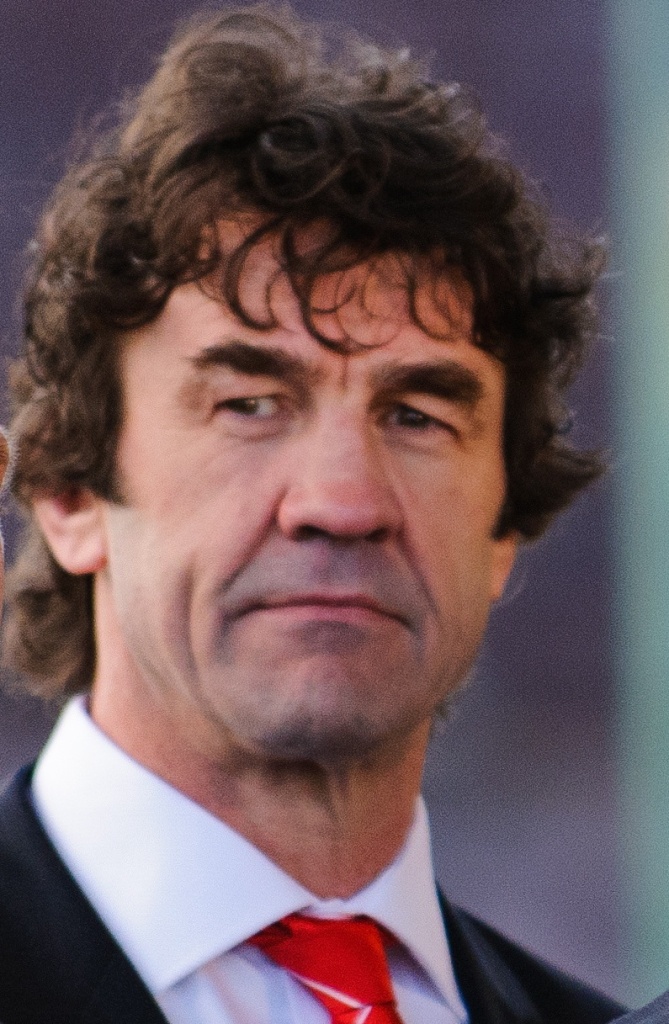
Mark Davies became Wales physiotherapist and was been involved with the Wales national rugby union team in non-playing roles from 1991 to 2022. Davies was nicknamed ‘carcass’ since he was a schoolkid.
Mark Davies, Wales captain, said:
I was hoping the Cup Final would have been a consolation for missing the internationals. But it didn’t turn out that way. To come out on tour was great and to be made Captain an added bonus
Terry Shaw played his third game in succession and was a star of the tour and looked a star forward in the making. However, only one cap would follow and that was the away defeat to Romania in 1983.
Howell Davies played his fourth game on tour and Bleddyn Bowen continued in his centre role which had proved to be a big hit.
Swansea prop, Gareth John, pulled out of the match. He bravely played in the previous match and had 6 stitches in a leg wound but this had infected ruling him out of the tour. Cardiff’s Ian Eidman replaced John in the team.
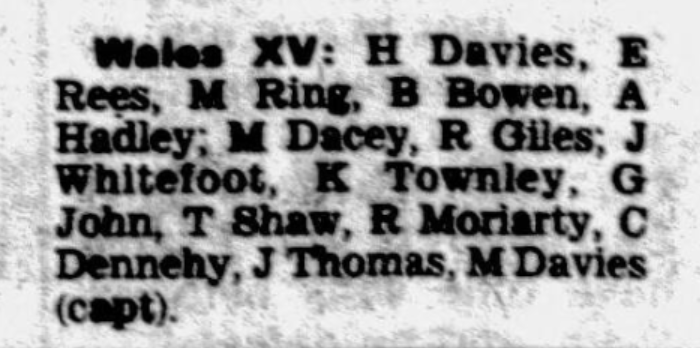
Valencia had two internationals in the pack, Pargo had 13 caps and No.8 Paolo was an international. There were 5 internationals in all and three Under 23 caps. The team was solely made up of the city’s premier team, RC Valencia.
Wales scored 13 tries. Shaw and Moriarty could push the Spanish pack back at alarming rate. It was a great game by Moriarty. Flanker Carl Dennehy not far behind. The only sour note was that captain Mark Davies had to leave the field after seven minutes with a cut which needed seven stitches. Wales played with 14 men for 24 minutes but Davies advised not to return therefore replaced by Gareth Roberts. Scrum half, Ray Giles had a difficult evening because of indifferent refereeing by Javier Gullarch as often had 2 to 3 Valencia players hindering him from offisde positions.
Mark Ring and Adrian Hadley scored three tries each. Hadley was expected to start in the internartional due to his powerful running and edge out the two Reeses. Hadley’s first cap came against Romania and would play 27 times for Wales before moving to Rugby League. Elgan Rees scored two tries and thrilled the crowd with one brilliant run during the game. It took Wales four minutes to score their first try as John Thomas scored the first of his two tries from a scrum in the corner. Mark Ring made a highly impressive switch from centre and oozed with class and played against Spain;s top centrem Jose Tormo. There was 2 tries for Howell Davies and one for Malcolm Dacey.
But for some indiffirent refereeing Wales could have beat the record of 83 scored against Castilian as they were scoring at will.
May 29th, Wales XV 65 v Spain 16, Madrid
This was Spain’s most important match in their history.
The Welsh side had 10 international caps and had registered 254 points and 28 tries on their Spanish tour. There were surprises in the Welsh side. Firstly, there was no place for Adrian Hadley who had scored 7 tries in 3 matches and Wales went for experienced Clive and Elgan Rees. At Scrum half, Ray Giles was given the nod ahead of Mark Douglas while loose head prop Jeff Whitefoot was selected ahead of British Lion, Clive Williams. Bleddyn Bowen partnered Mark Ring in centre, the two were in top form. Howell Davies played at full back and had been one of the successes of the tour. He became Wales’s full back for the 1984 Fiva Nations. Macolm Dacey had been playing well and had shown almost perfect judgement in his play.

Wales biggest problem would be the heat and the match was to kick off at 12.45 to allow for local television. The players are likely to be sweltering in the noon sun expecting to reach 70F. Physiotherapist Gerry Lewis has been pumping the players with Salt tablets to help them cope with the heat.
Wales scored 12 tries and the result was never in doubt. The Spaniards could find no answer to Wales forward power and were starved of the ball. They tackled as much as they could and their back division showed some adventurours spirit. Wales kept the ball tight in the first half, wearing down the Spaniards. Ray Giles created problems galore and Moriarty’s middle work was of the highest order.
Behind the scrum, the back line didn’t move as good as in the last two games but show good judgement and flair. Mark Ring particularly prominent with tricky running and accurate place kicking. He finished the match with 23 points.
There were two penalty missed by Howell Davies and one by Bleddyn Bowen meant Wales had to wait until the 13th minute to open the scoring with a Clive Rees try. The home side went into the lead after 22 minutes with a try from left wing Ricardo de la Cuesta. It was short lived as Ray Giles set up a try for Mark Ring which was followed quickly by Richard Moriarty. By now. Mark Ring had taken over kicking duties. John Perkins had a day to remember as he crashed over for a try. The Spanish scrummage was no match for Wales and any set piece close to their line caused panic. Their only answer was to infringe and English referee Fred Howard awarded a penalty try against them.
Mark Davies sprinted over for a interception 30 metres out. Tries by Bleddyn Bowen and Elgan Rees followed.
The Spanish hit back with two late tries by impressive full back Gabriel Rivero. However, Mark Ring and Clive Rees would add to the Welsh tally.
Tries: Clive Rees (2), Mark Ring (2), Ray Giles (2), R. Moriarty, J. Perkins, M. Davies, B. Bowen, E. Rees. Conversions: Mark Ring (6), B. Bowen (1)
Spanish captain Manuel Morice said:
The game was a tremendous experience for myself and all the Spanish players, and it is a pity that it has so late in my career that I won’t be able to repeat it
The Vice President of the Spanish Federation said:
It has allowed Spanish Rugby to ring the bell and it is going to help greatly with the game. The players and coaches have received a Big lesson and they have seen the path Spanish rugby must follow.
Rhys Williams, Wales Manager said:
We have gained immensely from this tour and I am sure out game has improved. I trust the same can be said for Spanish rugby as a result of our visit.
John Bevan, Wales coach said:
I was dissappointed that we conceded three tries because that is more than any international team scored against us last season. We have learned a lot from this tour and there have been a lot of pluses. The tour has shown who our next best players are from the established internationals and that is a good thing.
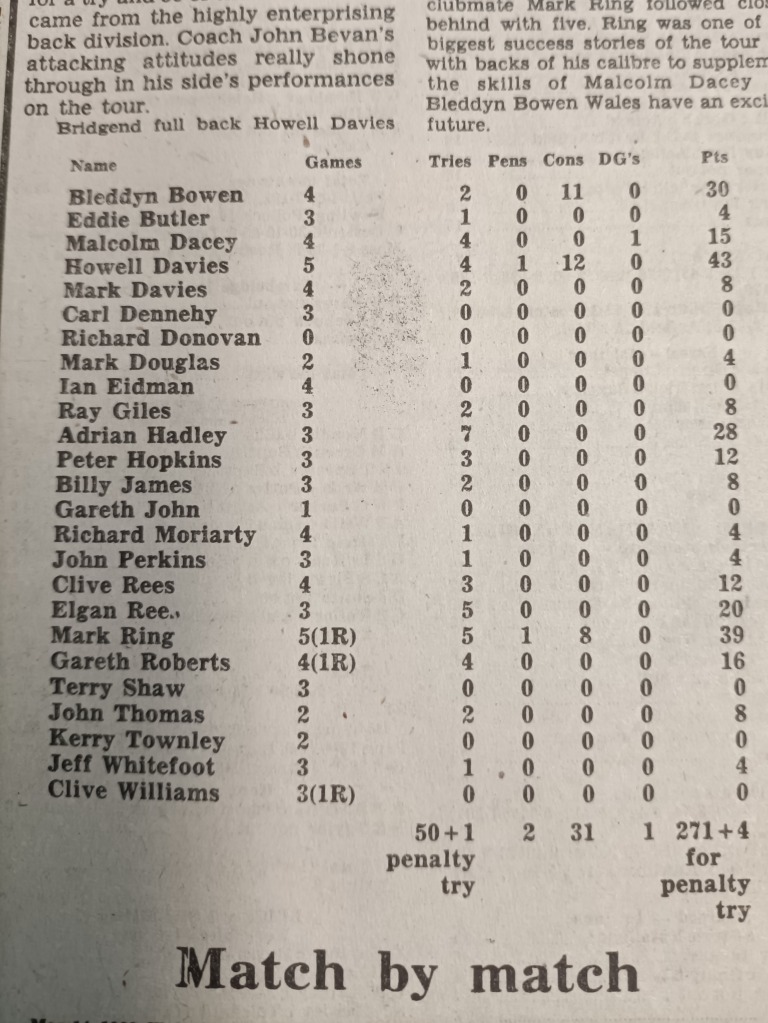
The tour statistics of all players in tour.

LATEST STORIES
Subscribe
Sign up for a weekly newsletter with the latest blog posts and exclusive content. In your inbox every Tuesday!
